Excellent drills, very detailed videos. Useful site for my U15 boys team.
What are the correct techniques for the 5 core skills in hockey? i need to be able to explain them as part of my AS course.
Does anyone have a link to a few GOOD Hockey Specific fitness tests. And I'm not looking for bleep tests which is somewhat out of date. Many thanks
What is a good fitness programme for hockey?
I have a u/13 hockey team. Is there another way to have fair traiils with e.g. drills and a point system ather than just playing a game?
Hi all,I've got my level 2 assessment coming up on Sunday and I just wanted to quickly check whether there's a 'recommended' structure to the session plan.Btw, this is a level 2 practical assessment and is with juniors (U14s).One coach has suggested a 3 part approach:1) techniques and skills required2) unopposed 3) opposedThe theme I'm choosing, which is a bit of a generic one, is defending in a channel (as I'm a defender and it's pretty straight forward).I'm not really looking for info on what exactly to include (i.e. theme specific) but rather general structure or whether E.H. have an approved structure to sessions?My session's on Sunday, so a quick reply would be awesome.Thanks,Gary
I have been given my first team ever!! They are 11 year old girls and I wanted guide/ recommendation on how I should structure my one hour sessions? E.g. how long should I spend on a warm up, drill etc. .Cheers,Freya
Im new to female hockey coaching and was just wondering if there is any recommendations someone can give me as to getting setup with a new team for the first night of training, what to look out for etc.
I've got some girls aged 11-14, basically made up from two different clubs. We're playing 7 a side and have a squad of 12. One club dominates in terms of numbers (75% of the squad) and although they are not doing anything 'wrong' at all, the 9 players are accustomed to their own company and there's a bit of a divide that has emerged. I can't understand why the players aren't just getting on with things but I'm getting some reactionary behaviour from some players, because of this 2 camp scenario. Any tips?Thanks.
EH have just launched their Golden Thread objectives for the single system (& above) - will some activities be created to reflect these? It is more gameplay & less directive / closed "drills". Cheers Alex.
I am coaching 5th and 6th gradersâ¦are the drills on this website for that age level or older?
Whats the best way to use keepers in a 2 hour club night .? Core skills of out field players needs more work to get them up to speed . Any ideas would be great ta Dave .
I coach aged 7 children and I don't know how to teach them how to play a proper hockey match without all of them going for the ball and not staying in their positions. Do I put lines where they are not allowed to pass? or what?
Hi all, after "volunteering" at the last minute to coach last season, I'm looking forward to coaching again this season but would like to be a bit more organised starting the season. Last season I used drills from here (thank you contributors) and put together a practice plan each week addressing what I thought were our weakness from the game just played. This got us through the season, we were promoted after grading and finished the season in the top 4 playoffs for our grade.I wonder if there is some kind of guide to putting a more coherent training plan together for the season.I'm coaching a boys secondary school team, aged 12-18. What kind of skills should they have mastered?What should they be attempting, working towards mastering (individually and as a team)?I last played as a collage boy on grass fields, the change to turf pitches has obviously obsoleted (along with age) much of what I knew as a player.Any pointers appreciated.David
Hi,I perhaps naively, expected to have most of our team from last year carry over and only have a few new comers to integrate and get up to speed with the rest. However meeting the team at our first practice last night i find I have five players still at school from last year and the rest all new comers, most of whom had not held a hockey stick at all till practice.This being only my second season coaching (year 9 to year 13 boys) has left me feeling a little blindsided, and feeling quite unsure how to prepare practices that target both groups of boys. Do i lump them both groups together, keep them separate? What drills/exercises to best bring the new comers up to speed.I don't want to neglect either group, keep practice worthwhile for the experienced boys, but also bringing the new comers up to a level were they can mix in with the others and learn organically from them while practicing as a team. David
I have been working hard on improving my Arial but I cannot get the power behind it. Are there specific training exercises I should do to strengthen the key muscles involved or is it a case of repetition till it advances. TIA
Hi, I have a complicated set of questions which shows my limited understanding of field hockey. Iâm coaching a U13 team of 22 girls in the U.S., and each player has at least one year of experience. Iâve played FH only with my kids though I have a basic understanding of the game and its concepts from playing soccer and basketball, and watching games for many years. I've coached kids in other sports, this is my first year coaching field hockey. (If youâre wondering why Iâm coaching, no parent in my community with playing experience would step up and my daughter loves the game.)A warming: This is a long set of interrelated questions but your taking the time will be greatly appreciated. Problem: The core problem is responsibility conflicts on defense. My players understand concepts of zone and marking separately. I donât know enough to explain how they should manage the two responsibilities in field hockey. I âget itâ by playing other sports for so long and therefore am able to see how they arenât âgetting it.â For clarity, I have in mind two kinds of offense players: OP1 (has the ball); OP2 (doesnât). The girls understand that zone means each has a certain area to protect; and marking, how to position themselves in relation to offensive player without the ball (OP2), and when to mark tight vs. loose, and to what it means to follow her mark. Situation 1 (Off-ball play): if one OP2 (OP2-A) enter zone of Left Midfield (LM), for example, how LM apply marking principles (a) when OP2-A enters zone; (b) a second OP2 (OP-B) enters zone; (c) if OP2-A leaves zone, LM should (i) release OP2-A and stay on OP2-B or (ii) follow OP1-A and leave OP2-B. How resolve these zone/marking conflicts for other positions: CM/RM? For RD/LD/CD? (We play a basic 3-3-1-3.)Situation 2 (Support teammate pressuring ball (D1). The girls understand basics of channeling, approaching OP1 to tackle, and how D2 should support D1 (e.g., D2 is cover for D2). Weâve done drills (1v2), but transferring into game situations is difficult. How explain D2 maintain zone responsibilities (a) if supporting D1 means D2 (a) vacates assigned zone and/or (b) or OP2 in zone). Situation 3 (Forwards). They are having trouble with changing defensive responsibilities from within the opposing teamâs quarter of the field, the middle quarters, and our quarter of the field nearest to our goal. Iâve thought about just making the defense solely marking but that creates its own chaos and tires out the girls. Without these basic concepts, the result is a joyless scrum: players are bunched up on defense, so if thereâs a turnover, the players are too close together for a counterattack. This is unfortunate because the speed of field hockey games should appeal to kids in the U.S. Thanks
Hi,I perhaps naively, expected to have most of our team from last year carry over and only have a few new comers to integrate and get up to speed with the rest. However meeting the team at our first practice last night i find I have five players still at school from last year and the rest all new comers, most of whom had not held a hockey stick at all till practice.This being only my second season coaching (year 9 to year 13 boys) has left me feeling a little blindsided, and feeling quite unsure how to prepare practices that target both groups of boys. Do i lump them both groups together, keep them separate? What drills/exercises to best bring the new comers up to speed.I don't want to neglect either group, keep practice worthwhile for the experienced boys, but also bringing the new comers up to a level were they can mix in with the others and learn organically from them while practicing as a team. David
I coach aged 7 children and I don't know how to teach them how to play a proper hockey match without all of them going for the ball and not staying in their positions. Do I put lines where they are not allowed to pass? or what?
I have been given my first team ever!! They are 11 year old girls and I wanted guide/ recommendation on how I should structure my one hour sessions? E.g. how long should I spend on a warm up, drill etc. .Cheers,Freya
EH have just launched their Golden Thread objectives for the single system (& above) - will some activities be created to reflect these? It is more gameplay & less directive / closed "drills". Cheers Alex.
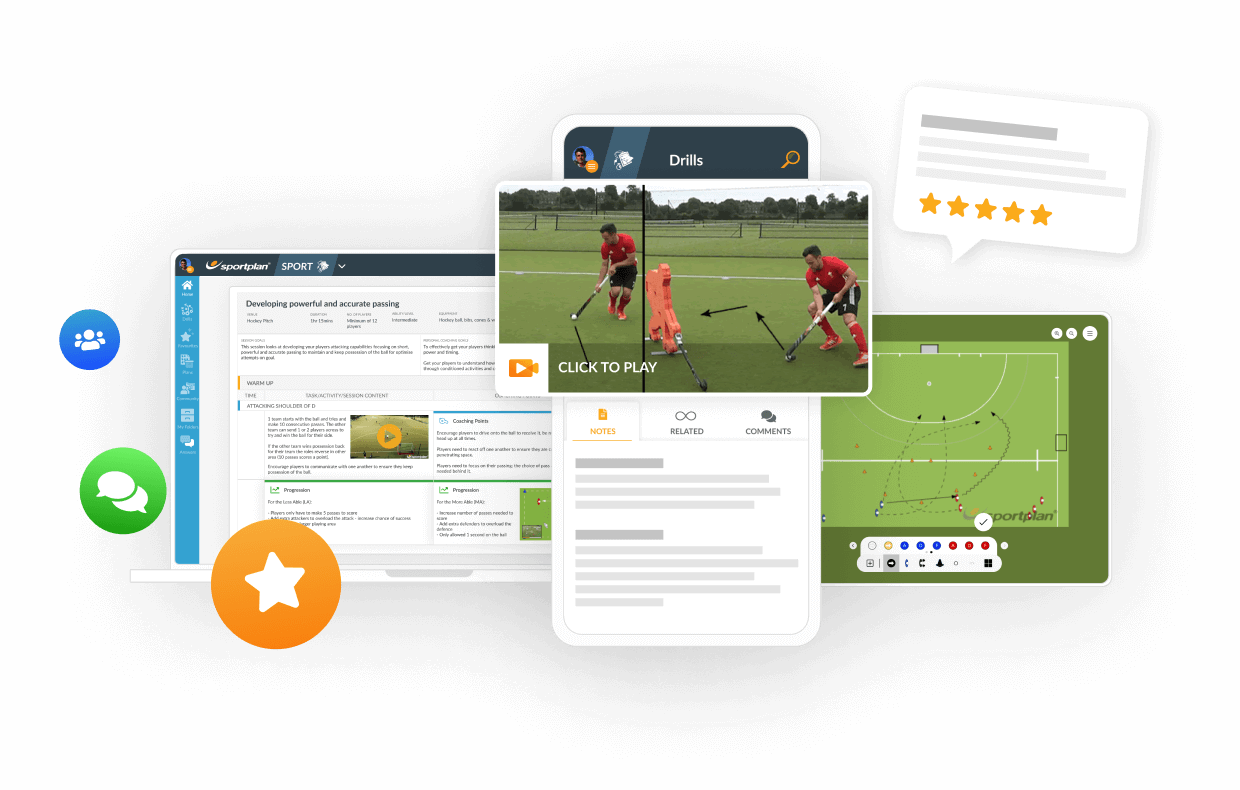
in more ways than one
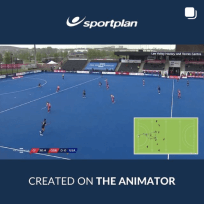
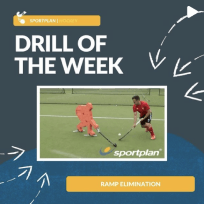
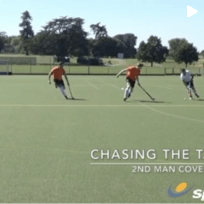
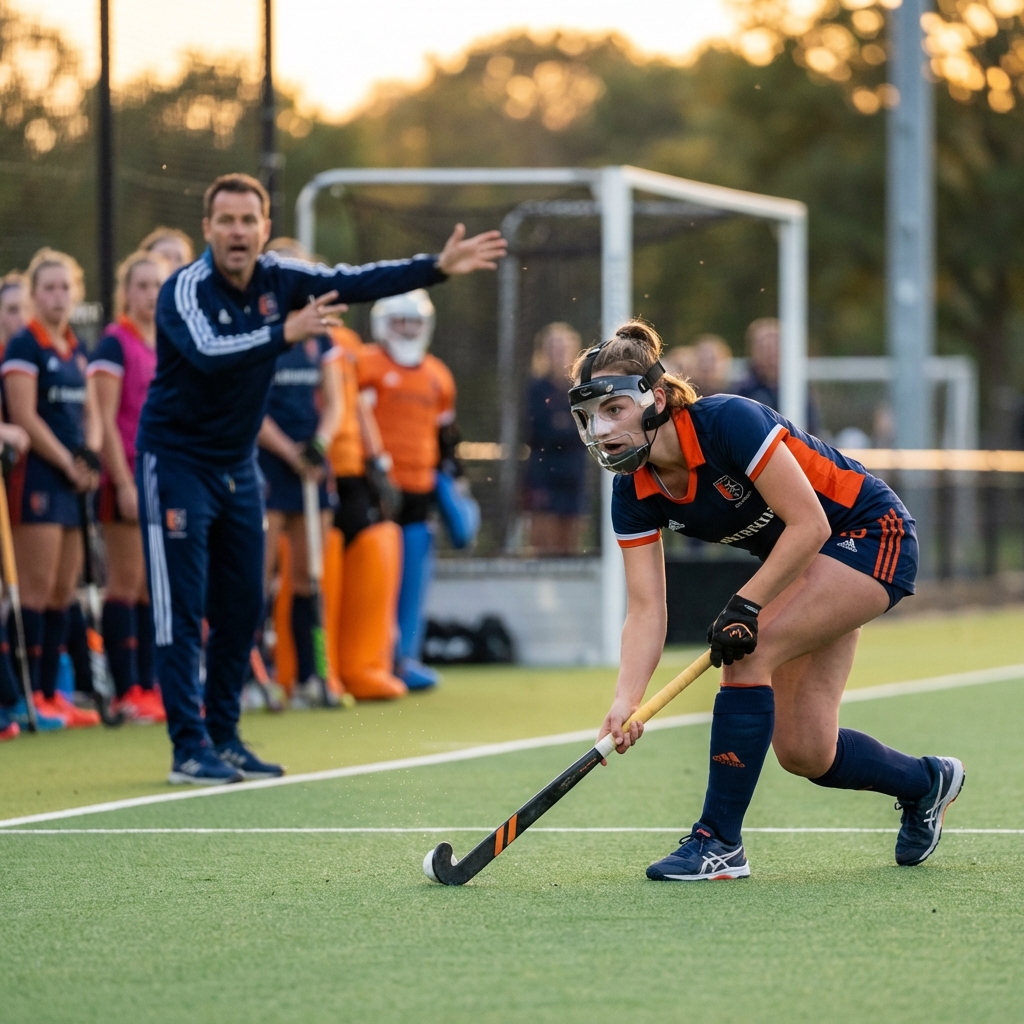
2026 is the first full year with mandatory face masks for penalty corner defence. Here's how to train your defenders for the new equipment reality.
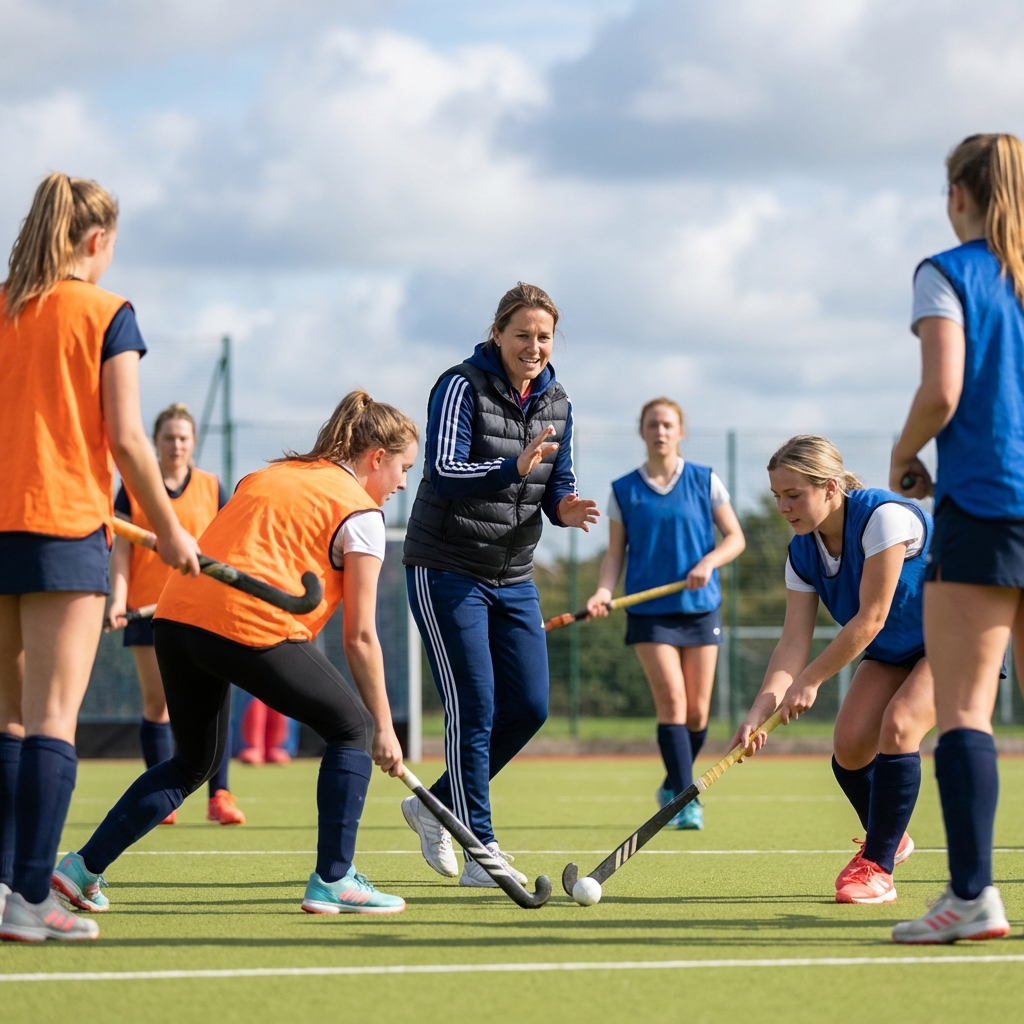
Move beyond drills and let your players discover solutions through play. The constraints-led approach is transforming how hockey is coached at every level.
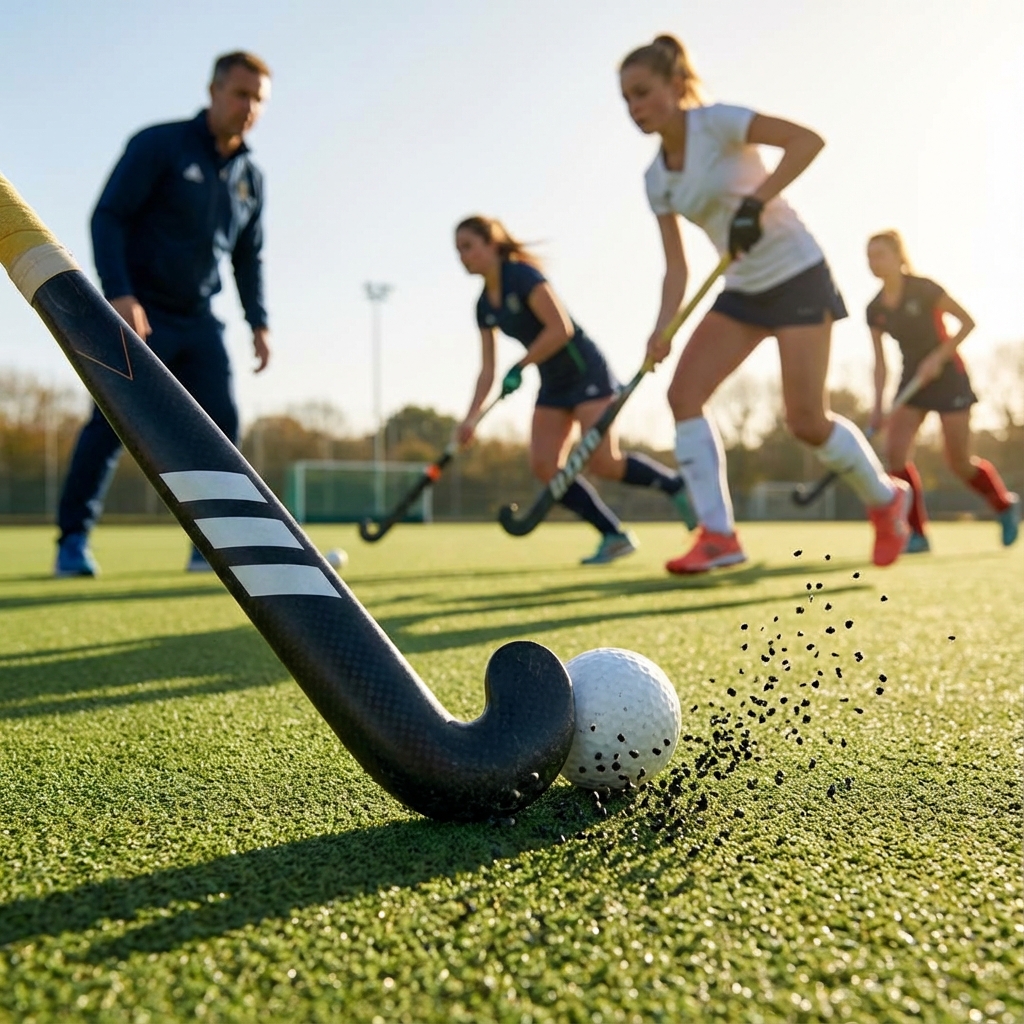
From mandatory safety equipment to evolving tactical systems and player-centred coaching methods, field hockey is transforming. Here's what every coach needs to know for 2026.
Coaches from around the world look to Sportplan for coaching confidence.